On the afternoon of November 27, under the chairmanship of National Assembly Chairman Tran Thanh Man, the National Assembly discussed the draft Law on Special Consumption Tax (amended). General Secretary To Lam and President Luong Cuong attended the meeting. Vice Chairman of the National Assembly Nguyen Duc Hai chaired the meeting. Deputy Prime Minister and Minister of Finance Ho Duc Phoc received and explained the opinions raised by delegates.
The issue that many delegates are interested in discussing is the special consumption tax on air conditioners and drinks with sugar content over 5g/100ml; in which, many delegates agree to tax cigarettes because this is a product that is harmful to health. However, the views of the delegates on this issue are different, some delegates think that there should be a reasonable tax roadmap to avoid affecting businesses operating in this field, other delegates agree with the roadmap of the draft law to protect people's health and increase revenue for the budget.
Agree to impose special consumption tax on cigarettes according to the Government's proposed roadmap
Expressing their support for imposing special consumption tax on tobacco, delegates: Huynh Thi Phuc (Ba Ria - Vung Tau delegation); Nguyen Manh Cuong ( Quang Binh delegation); Do Thi Thu Hang (Dong Nai delegation); Duong Khac Mai (Dak Nong delegation)... all said that taxing tobacco aims to reduce smoking rates, reduce diseases and medical costs caused by smoking.
Contributing opinions to the draft law, delegate Duong Khac Mai agreed with the imposition of special consumption tax on tobacco products. Delegate Duong Khac Mai emphasized that this product has a great impact on human health, pollutes the environment and is a danger of fire and explosions... Delegate Duong Khac Mai proposed to consider and stipulate the absolute tax rate on cigarettes calculated by "pack" appropriately. Because according to the provisions of Article 24 of the Law on Prevention and Control of Tobacco Harms, the number of cigarettes packaged in a pack of cigarettes must not be less than 20. In the case of regulations as in the draft Law, enterprises can produce more than 20 cigarettes/pack and the purpose of reducing the smoking rate and amending to apply an absolute tax rate compared to the current law will not be achieved. Therefore, the delegate suggested that the Drafting Committee of the Law project should stipulate more clearly on this content.
Delegate Hoang Thi Thanh Thuy spoke at the meeting.
Agreeing with the roadmap for increasing taxes on cigarettes, delegate Hoang Thi Thanh Thuy (Tay Ninh delegation) highly appreciated the Government for proposing to the National Assembly two options for calculating special consumption tax on cigarettes, in which applying a mixed tax calculation method (including a combination of tax rates and absolute taxes), with a roadmap for increasing absolute taxes over the years to reach an absolute tax rate of 10,000 VND/pack of cigarettes by 2030, striving to achieve the WHO's recommended target of increasing the tax proportion in the current retail price of cigarettes from about 36% to 75% by 2030, aiming to reduce the rate of tobacco users among men aged 15 and over to below 36%, of the 2030 tobacco harm prevention strategy.
The delegate said that according to WHO data, tobacco causes 8 million deaths each year worldwide and 1 million deaths due to passive smoking. The poor have a higher smoking rate than the rich. This trend is also consistent with the figure of more than 80% of smokers in the world concentrated in low and middle income countries. In Vietnam, an average of 70,000 people die each year from tobacco-related diseases, 4 out of 10 adult males smoke, domestic consumption accounts for 57% of the total output of the domestic tobacco industry. According to the delegate, in this field, compared to the world, Vietnam is among the top countries with "the cheapest tobacco prices, lowest taxes, highest rate of adult males smoking", leading to economic losses, medical costs of 1.14% of GDP each year.
According to WHO and the experience of other countries, increasing taxes on this product is an effective policy tool, however, the problem is how to increase it appropriately. The delegate pointed out that there are many concerns that if taxes are increased immediately and strongly, difficulties will arise: increasing smuggled cigarettes; causing damage to the tobacco industry and workers in the industry; and damage to tobacco farmers. However, the delegate affirmed that the above concerns are insignificant compared to the unpredictable threats caused by cigarettes.
Delegate Huynh Thi Phuc spoke at the meeting.
Also expressing agreement with the goal of reducing the smoking rate from 42.7% to 39.7%, delegate Huynh Thi Phuc said that this is a suitable and necessary goal. The delegate suggested that the Drafting Committee should pay attention to the current situation of using e-cigarettes and heated tobacco products to consider not regulating other types of tobacco products for smoking, inhaling, and sucking in the draft Law on Special Consumption Tax (amended) this time. "This can be considered an initial solution to overcome the loophole while we wait for the Law on Prevention and Control of Tobacco Harms to be amended, and at the same time, it is also an implementation of the Prime Minister's Official Dispatch No. 47 on solutions to strengthen control and prevent the harmful effects of e-cigarettes and heated tobacco products" - the delegate expressed her opinion.
Vietnam spends about 1 billion USD to treat tobacco-related diseases.
Speaking to the delegates in support of the need for a roadmap to increase taxes on tobacco, delegate Truong Trong Nghia emphasized that special consumption tax has an important function of guiding consumer behavior, to protect people's health. Reality shows that maternal and newborn health care in Vietnam is very good. However, our country's medical costs are high for treating diseases, especially diabetes and lung disease. Therefore, the delegate suggested that it is necessary to be drastic in implementing special consumption tax on tobacco. It is necessary to set a specific goal that by 2045, Vietnam can become a country with no smokers.
Regarding the special consumption tax on cigarettes, the Deputy Prime Minister and Minister of Finance said that cigarettes cause serious consequences, with about 40,000 people dying each year from smoking, and Vietnam spending about 1 billion USD to treat related diseases. Meanwhile, the price of cigarettes in Vietnam is very low, only about 6,000 - 20,000 VND/pack, in Singapore it is 200,000 VND/pack. In addition to cigarettes, other products such as cigars, tobacco for smoking, snuffing, chewing, and sniffing will also be subject to a special consumption tax of 75%.
Coconut water, milk... are not subject to special consumption tax.
Speaking at the meeting, delegate Nguyen Thi Kim Thuy (Da Nang delegation) suggested that the drafting agency should study and expand the subjects subject to special consumption tax (SCT) to sugary drinks in general instead of sugary soft drinks. Delegate Nguyen Thi Le Thuy (Ben Tre delegation) suggested that the drafting agency should carefully consider applying SCT to sugary drinks. The delegate said that, for example, canned coconut water does not need to add sugar, natural coconut water already has a sugar content equivalent to 6-7g/100ml.
Delegates listened to Deputy Prime Minister and Minister of Finance Ho Duc Phoc explain.
Explaining the special consumption tax on sugary soft drinks, Deputy Prime Minister and Minister of Finance Ho Duc Phoc said that this tax is to ensure people's health, in accordance with international practices. The standard for sugar content will be regulated by the Government, products such as coconut water, milk, and pure fruit juice will not be subject to tax.
Source CAND
Source: https://baotayninh.vn/xi-ga-thuoc-la-de-hut-hit-nhai-ngui-cung-se-chiu-thue-tieu-thu-dac-biet-75--a182103.html


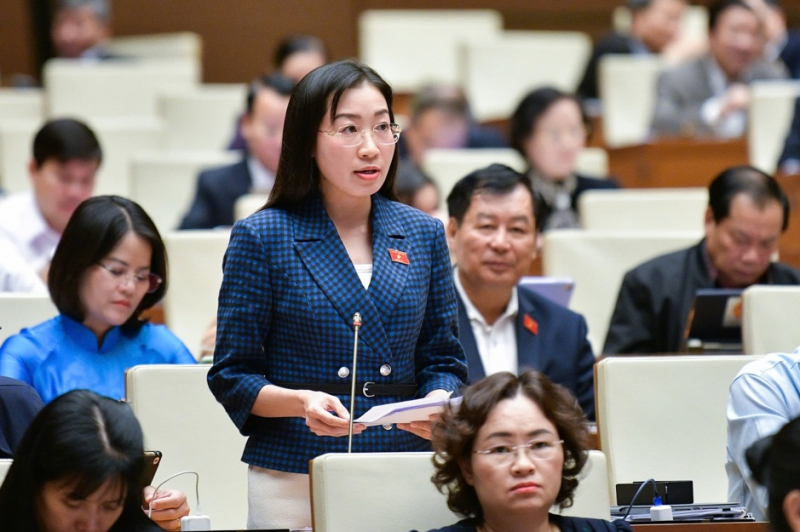
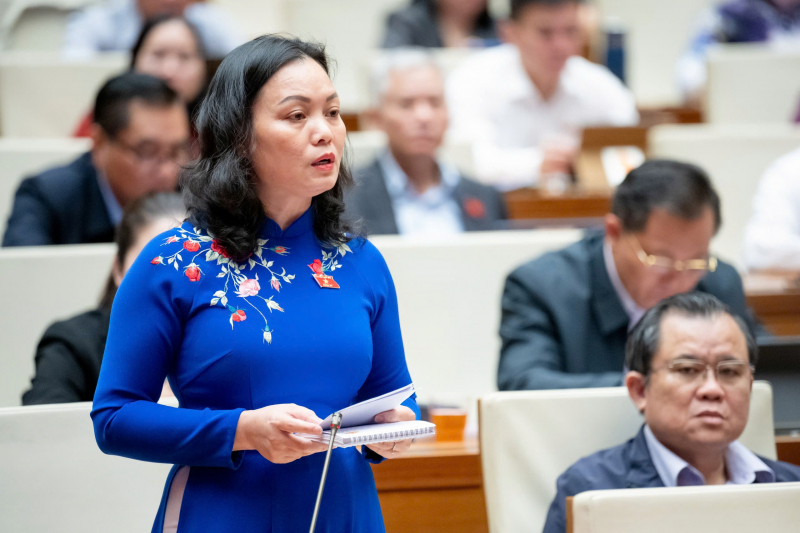
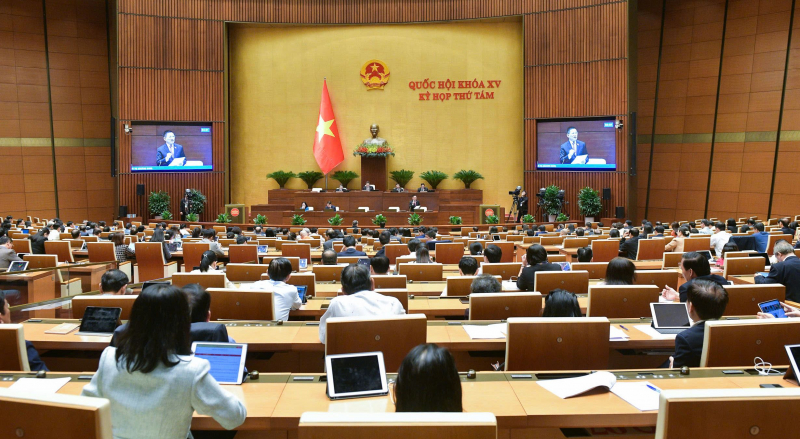

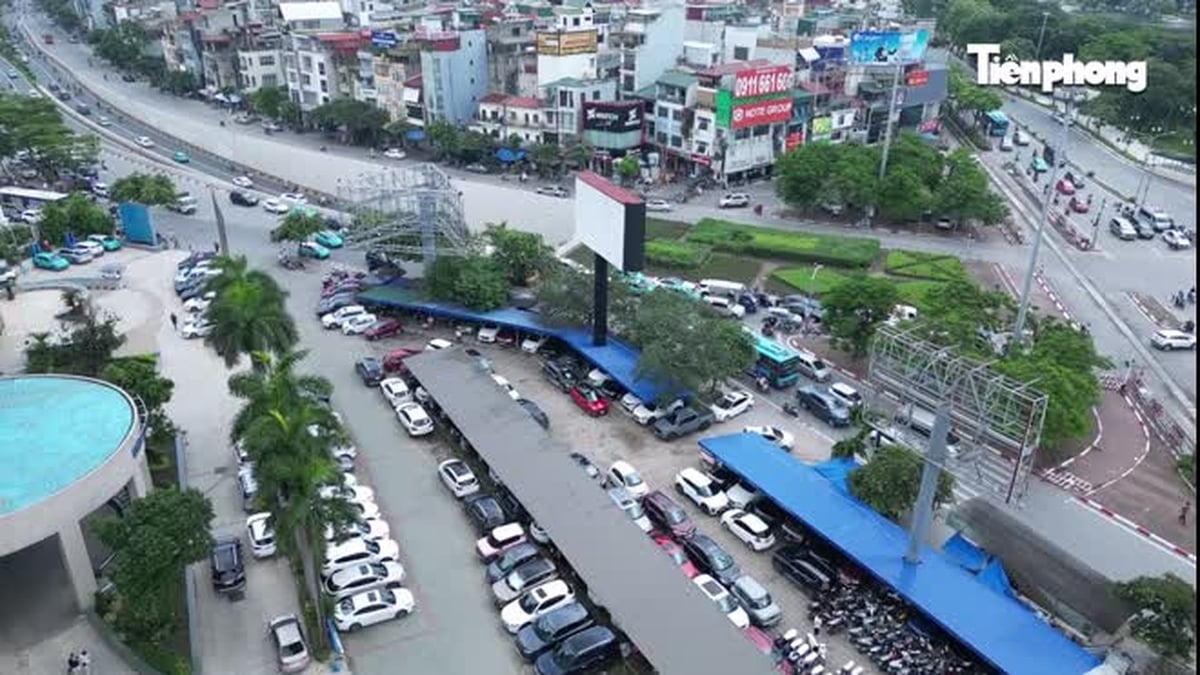

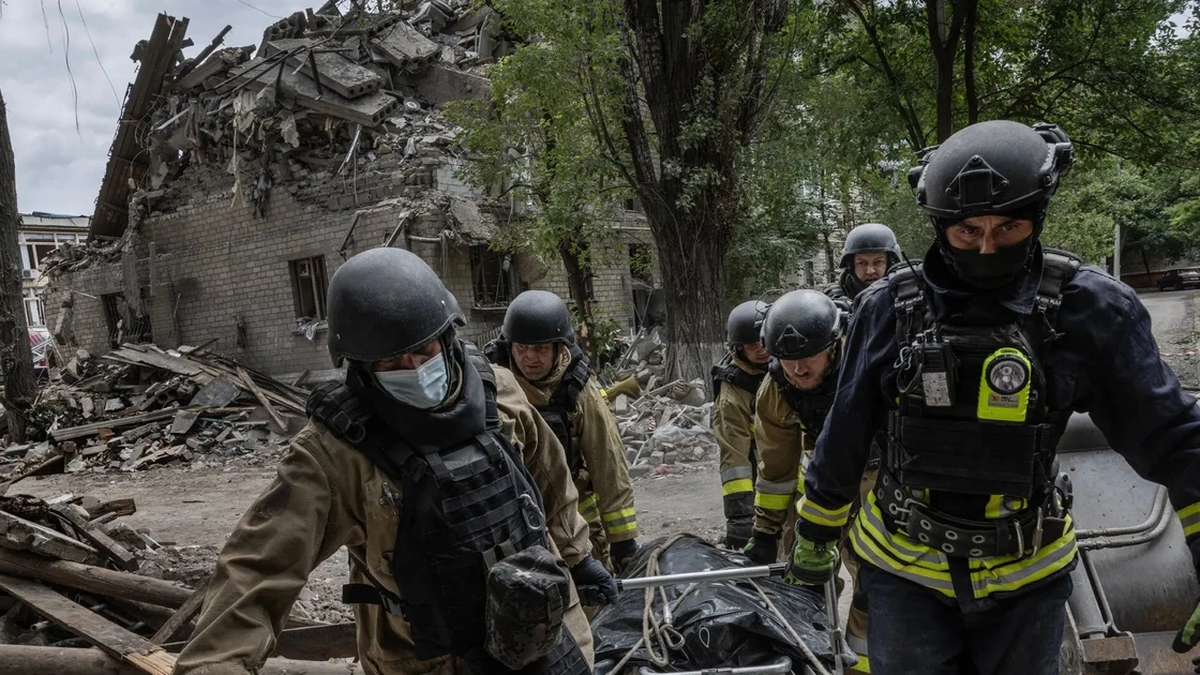
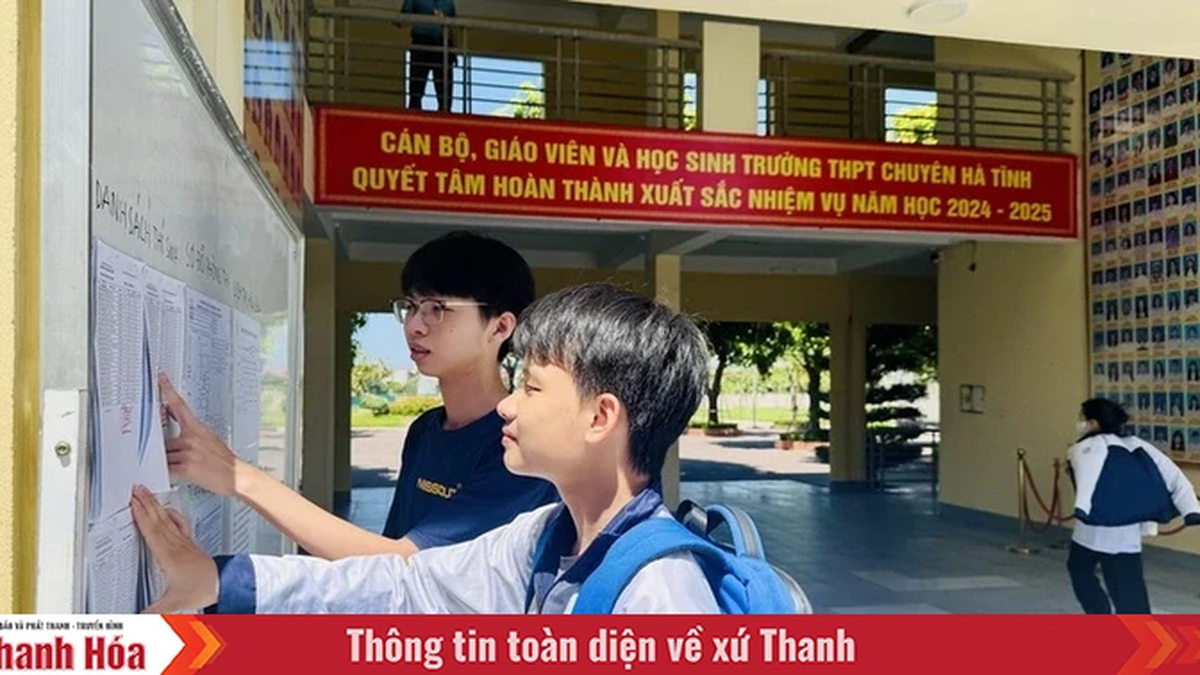

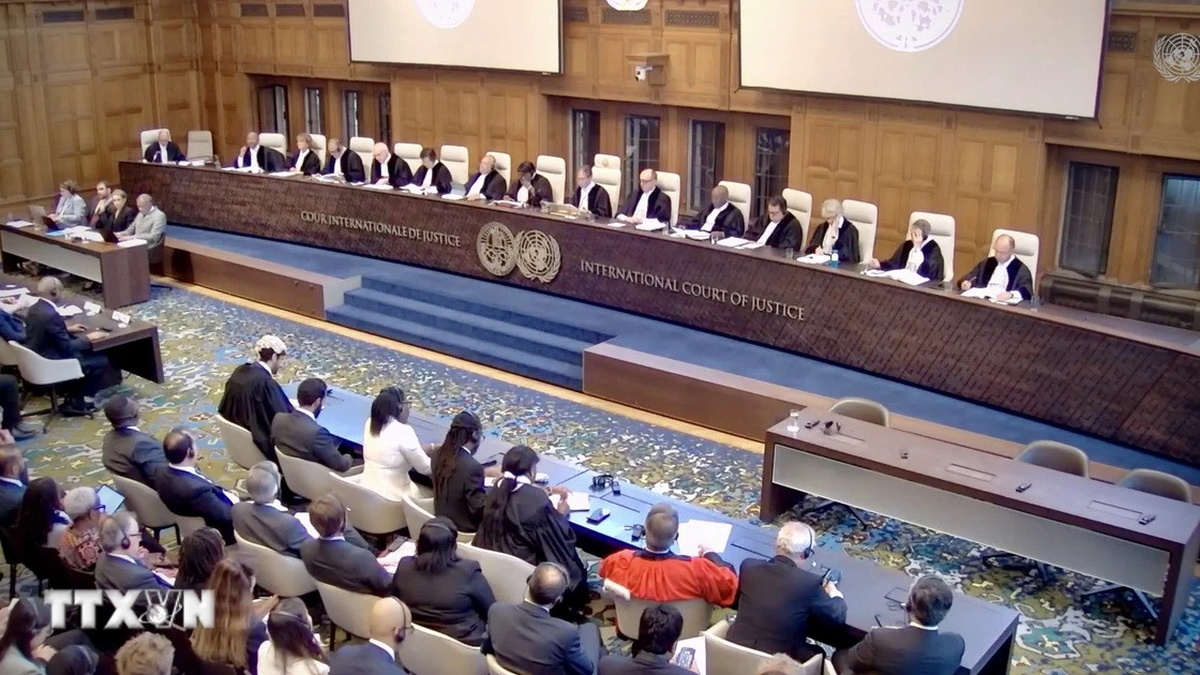

![[INFOGRAPHIC] LG xboom AI: The coolest Gen Z portable speaker this summer](https://vphoto.vietnam.vn/thumb/1200x675/vietnam/resource/IMAGE/2025/7/29/db13af6569c24d0582b8a1c82e7cecd2)
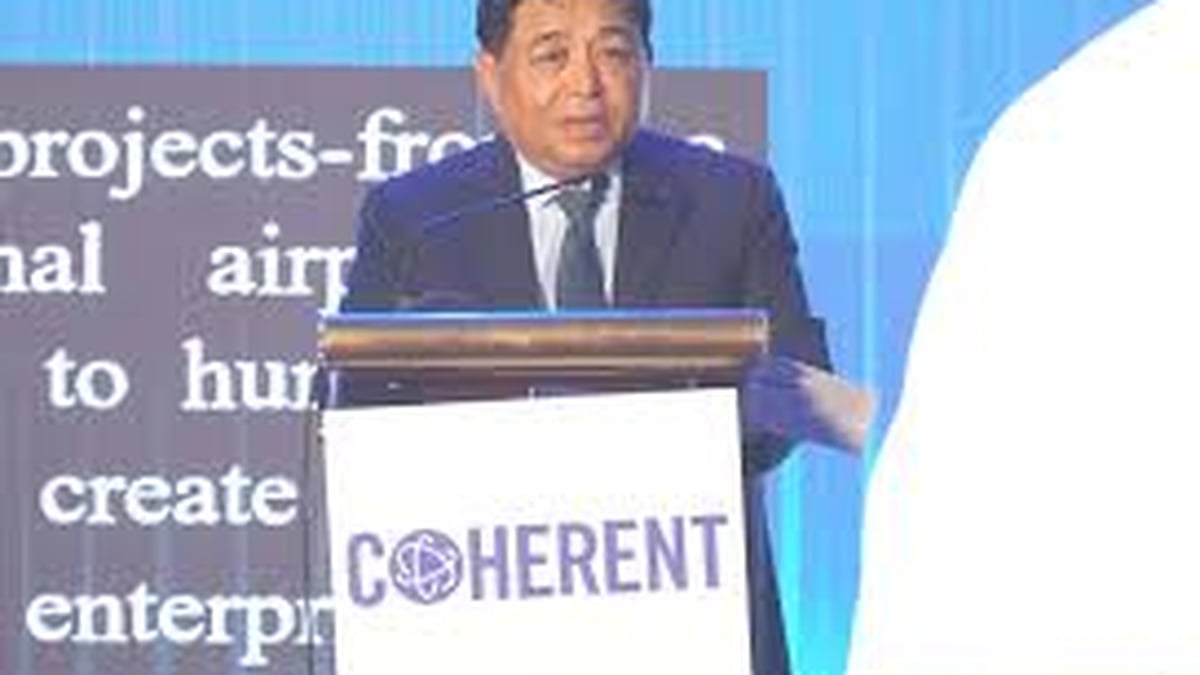















![[Photo] National Assembly Chairman attends the seminar "Building and operating an international financial center and recommendations for Vietnam"](https://vphoto.vietnam.vn/thumb/1200x675/vietnam/resource/IMAGE/2025/7/28/76393436936e457db31ec84433289f72)


























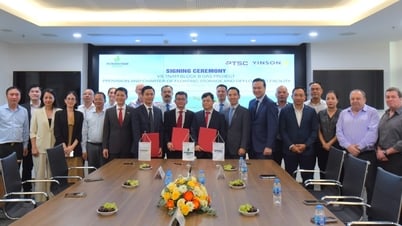










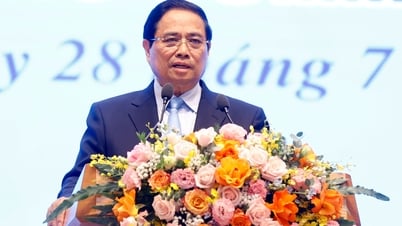
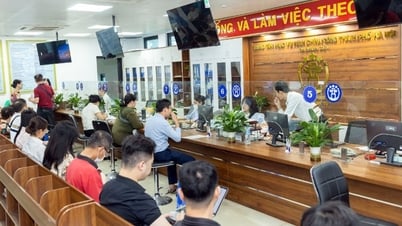

































Comment (0)